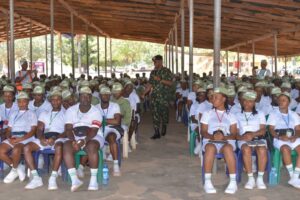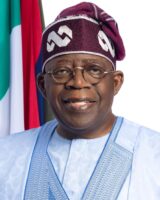The Federal government says it is committed to ending Nigeria’s dependence on fish importation by aggressively boosting local fish production.
Minister of Marine and Blue Economy, Adegboyega Oyetola, made the pledge at a consultative meeting with fisheries cooperative groups in Abuja.
Nigeria spends approximately $1.2 billion on fish imports every year and this accounts for an estimated 45 per cent of the nation’s total fish consumption.
The country’s annual fish demand stands at about 3.6 million metric tons, but local production only covers one third of that figure, leaving a significant gap that is primarily filled by imports.
A meeting organised is one of the many steps being taken by the federal government to bridge the nation’s production and consumption gap.
Representatives of major fisheries and aquaculture associations converged to further deepen areas of collaboration for optimal results.
Read Also
The government outlines a bold vision aimed at transforming the nation’s aquaculture sector into a powerhouse of food security, employment, and export competitiveness.
It is also committed to supporting the fisheries and aquaculture subsector through policy, technical support, and financial inclusion
The Ministry is intensifying efforts to support women and youth in the fishing sector with start-up grants and other empowerment initiatives
While they acknowledge government’s efforts, participants list overfishing, environmental degradation, lack of access to affordable finance, post-harvest losses, inadequate cold storage infrastructure, low youth involvement, multiple taxation by local government authorities, and the rising cost of imported fish feed as some of the challenges facing the sector.
The participating groups include the Fisheries Cooperative Federation of Nigeria, Tilapia Aquaculture Developers Association of Nigeria, Catfish Farmers Association of Nigeria, Women in Fish Farming and Aquaculture, and the Practicing Farmers Association of Nigeria.





